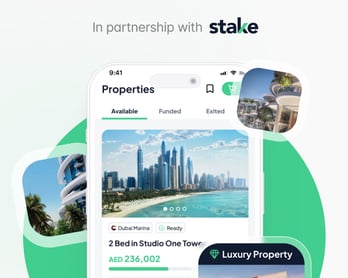In the not-so-distant past, venture capitalists were the primary source of startup funding. Regular folks couldn’t invest in startups.
Even accredited investors—the wealthiest ~10% of Americans—had to be part of a well-connected investment network or family office in order to participate.
For everyone else, the only option was to wait until a company went public to get in on the action. Things started to change in 2012, when the US Congress passed the Jumpstart Our Business Startups (JOBS) Act.
Oracle Health is one of the investment opportunities available under Reg A+
Check out all our startup offerings
Jumpstarting startups
In essence, the JOBS Act sought to encourage the funding of small businesses by easing certain regulations that were making it difficult to source capital.
Here’s what the new law did:
Lowered reporting and disclosure requirements for companies with less than $1 billion in revenue
Made it easier to advertise of securities offerings
Allowed greater access to seek funding from the “crowd,” which helped to expand the number of companies that can offer stock without going through SEC registration
Two elements of the JOBS Act—Title III (Regulation Crowdfunding, or Reg CF) and Title IV (Regulation A, or Reg A)—both help entrepreneurs raise investment dollars from the general public (non-accredited investors) and sophisticated (accredited) investors.
Thanks to Reg A, you can buy stock in Restaurant.com!
These two regulations differ in:
The amounts companies can raise
The amounts individuals can invest
Disclosure and filing requirements
We covered Regulation Crowdfunding in a previous article. Now let’s take a closer look at Regulation A.
Digital Eclipse, like all our video game investment opportunities, is a Reg A+ issuer
How Reg A became Reg A+
Before the JOBS Act came along, Regulation A already existed as a law that allowed companies to raise up to $5 million from the public—as long as they didn’t mind getting approval and paying fees in every state where they planned to solicit. This happened way back in 1936.
It turned out they did mind, so Regulation A didn't see much use.
When the JOBS Act became law, Regulation A got a much-needed amendment. The SEC dubbed it “Regulation A+” to show the significance of the changes.
The most notable additions were:
- The state-by-state Blue Sky Law registration requirements were removed (only for Tier 2, see below).
- Limits were raised from $5 million to $20 million/$75 million (raised from $50 million in 2020), depending on which “tier” of the law is used.
The result was a big win for companies looking to raise large amounts of capital with less effort. The US Congress took a time-consuming and underused law and turned it into a business-friendly piece of legislation that has helped companies raise millions.
Fun fact: The law is still officially known as Regulation A… just to confuse everyone a little bit more. Think of Reg A+ as a cute nickname for Tier 2.
What does Reg A do?
Regulation A serves as a substantial tool to boost a startup's capital, while simultaneously raising brand awareness of the company’s product or service.
With the enhanced version of Reg A, startups can invite the public to invest in them without having to go through all the paperwork and regulation of a traditional public market equity offering (IPO). This means lighter reporting requirements and lower costs. It also provides a shorter runway to going public through what is called “uplisting.”
Reg A to going public
Uplisting is when over-the-counter (OTC) listed companies graduate up to a listed exchange, like the NYSE or NASDAQ. OTC securities trade on a broker-dealer network, are thinly-traded, and low-priced. These securities trade OTC because they don't meet the financial or listing requirements to list on a market exchange.
Some companies find Regulation A+ offerings to be an efficient tool for raising capital while preparing the company to uplist to the NASDAQ or the NYSE.
When a company “goes public,” they list their shares on a stock exchange (like NYSE), which is a public market for buyers and sellers of the stock.
Conversely, companies that participate in Reg A offerings do not have to list their stock on any regulated market. Moreover, they have the option of restricting liquidity on their shares after the offering, which is unappealing to many investors.
Moonray is another video game investment opportunity using Reg A+
Tier 1 vs. Tier 2
In March of 2015, the SEC laid out the rules for a Regulation A offering, defining it with two distinct options for issuers: Tier I and Tier 2. This is important information to know before investing in a Reg A offering, because the tier affects investor limits and state-based restrictions.
Tier 1
The company can raise up to $20 million per offering (in any twelve-month period).
- Anyone in the world can invest.
- The company is allowed to publicly advertise.
- Financials must be disclosed, but audits are not required.
- Blue Sky laws must be satisfied in every state where an investor resides.
- There is no limit on the amount non-accredited investors can invest.
Tier 2
The company can raise up to $75 million per offering (in any twelve-month period).
- Anyone in the world can invest.
- The company is allowed to publicly advertise.
- Financials must be audited.
- No need to register by state (but certain state notice filings are required).
- Non-accredited investors are limited to investing 10% of their income or net worth (whichever is greater) per offering. Note: This limit does not apply to accredited investors or to purchases of securities that will be listed on a national securities exchange.
That last point—investment limits for non-accredited investors—is the most important difference between the tiers from an investor's point of view. Investors in Tier 1 offerings don't face such limitations.
Pros and cons of Regulation A offerings
For issuers
Pros
-
“Reservation Campaign'' stage: this accommodation enables all issuers to gauge the public’s interest before launching a Regulation A securities offering. By choosing this option, companies can:
Solicit the general public through different channels, including social media and other online advertising.
Use as a tool to get indications of interest (non-binding investment reservations), either before or after filing a registration statement with the SEC.
Easier and less-costly funding process than an IPO, with fewer regulations and disclosures.
Building a base of shareholders can ensure a healthy IPO down the road and help avoid IPO disasters like we have seen in the recent past, where share prices plummet on the first day after launch.
Higher raise limits than Reg CF.
Open to more investors than Reg D
Fewer limits on investment amounts from individuals.
Cons
The company must be incorporated or formed in the US or Canada.
Costlier than other offerings, such as Reg CF and Reg D.
The process may be too lengthy and/or expensive for young companies trying to grow while keeping startup costs low.
For investors
Pros
Anyone can participate in the early growth of a potentially successful venture.
Brand loyalists can invest in companies that align with their values and beliefs.
Provides real, possibly transferable interest in a company.
Early investors (in certain equity deals) do not experience “lock-up” expiration periods—which are common in IPOs—that restrict the selling of shares for a period of 90 to 180 days after a company goes public.
Cons
Liquidity may be limited because there aren’t many options currently available for trading these securities.
Non-accredited investors in Tier 2 offerings are limited to investing 10% of their income or net worth, whichever is greater.
Many of these companies will fail to generate revenues, resulting in the loss of some or all of initial investment.
The world has never been as connected as it is now. Convenient investment options seem to be popping up everywhere, and are sure to proliferate and evolve over time. Reg A has already seen significant changes to its original blueprint, even though it is still in its infancy. It looks like the future will be an exciting place.
Whether you are a startup founder looking to fundraise, or an investor searching for vetted deals, Republic has all of the information you need to make an informed decision for your future.
Find out what Regulation A/A+ is




 Oops! We couldn’t find any results...
Oops! We couldn’t find any results...







